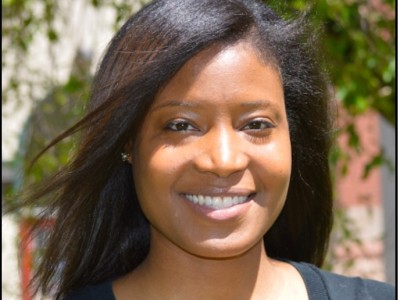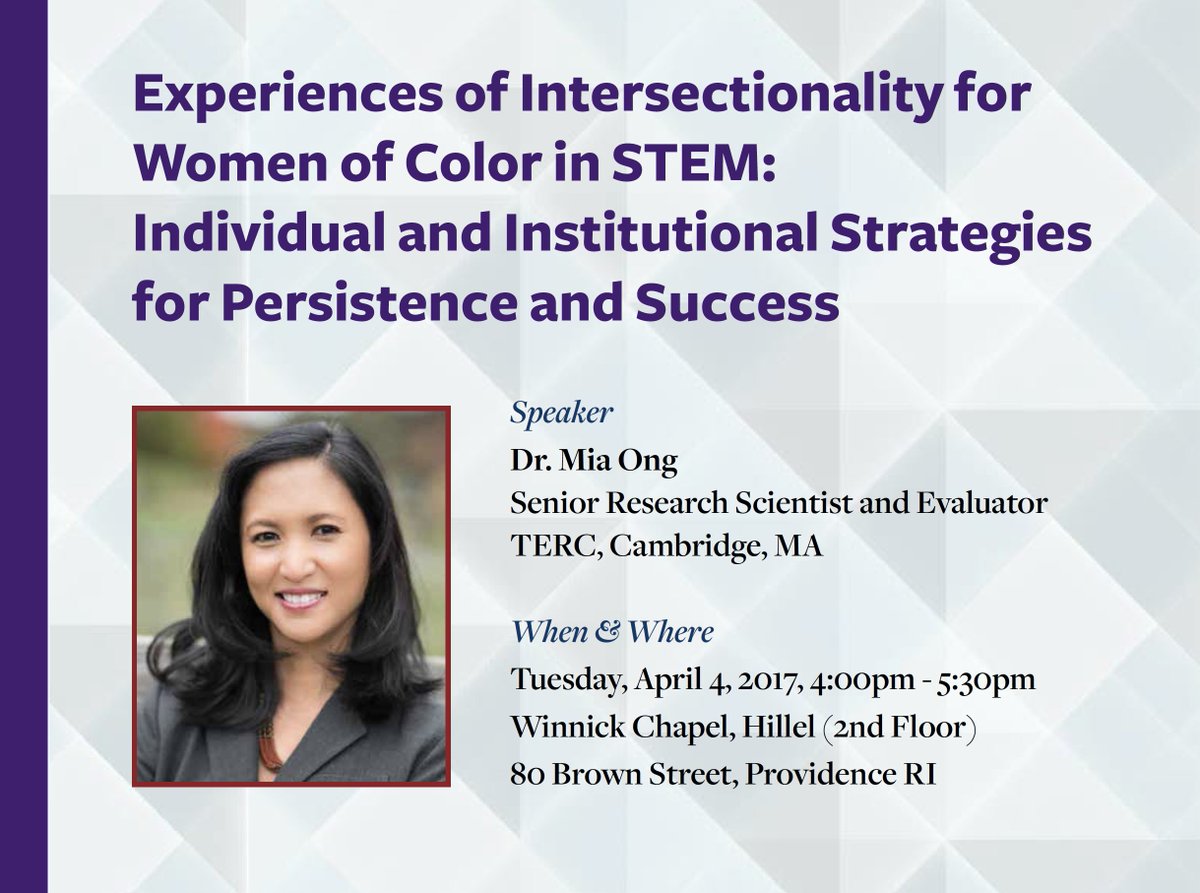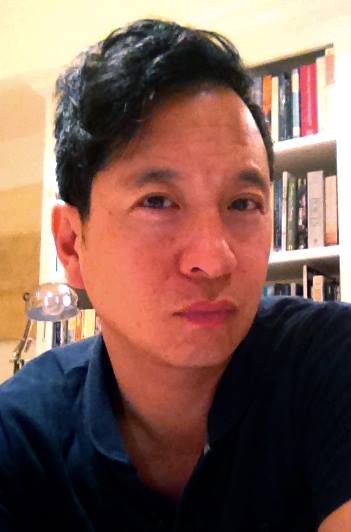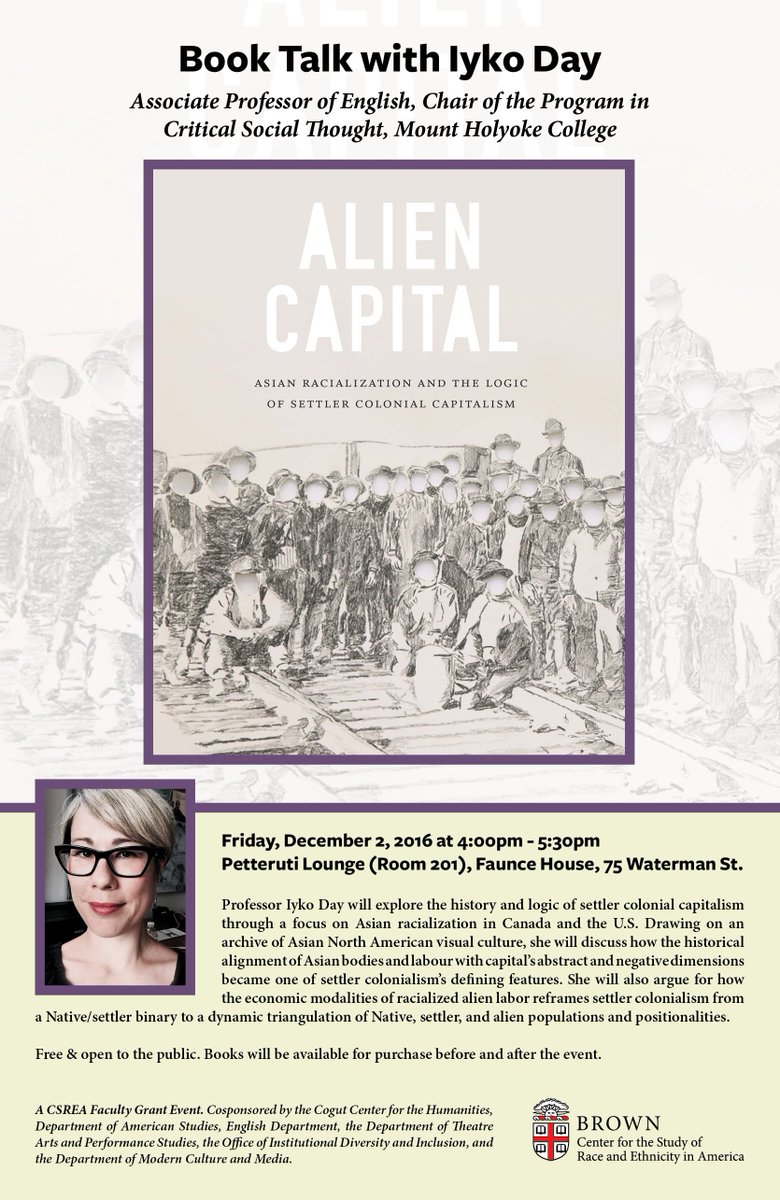Video Available
Symposium: The U.S. Immigration Regime and the Politics of Belonging [VIDEO]
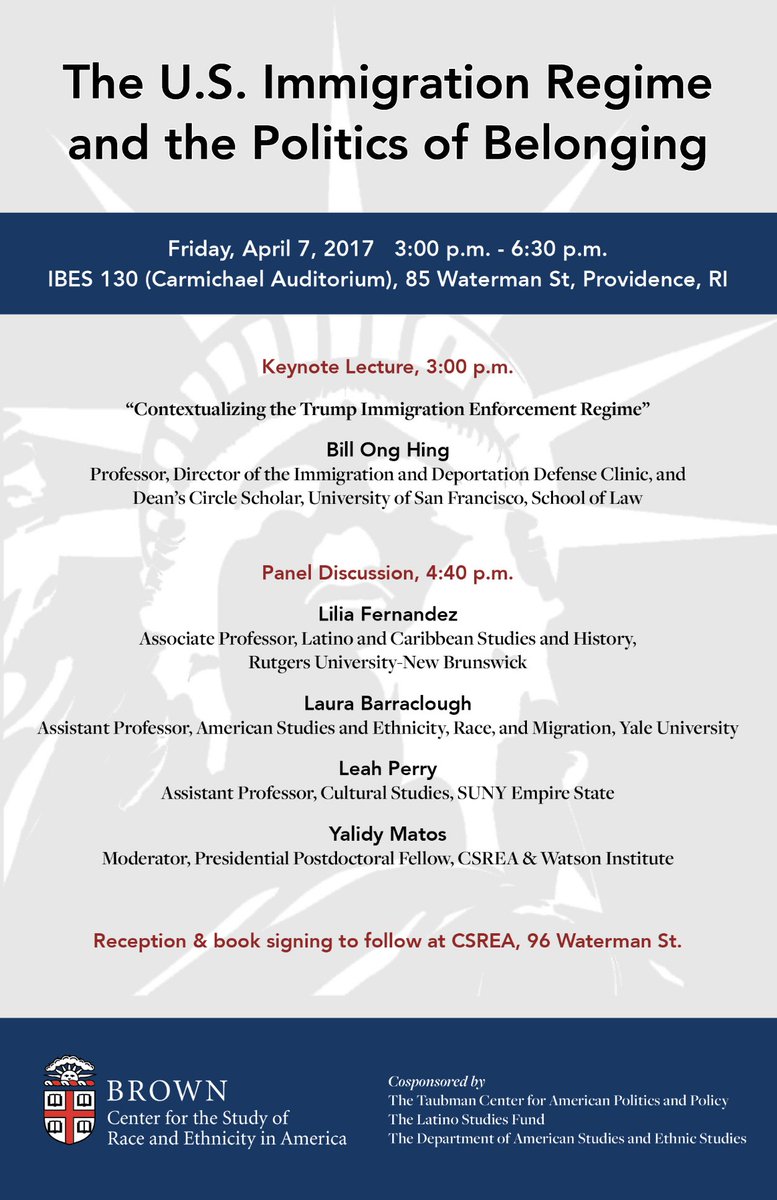
IBES 130 (Carmichael Auditorium)
On April 7, 2017, CSREA will be presenting a symposium entitled, The U.S. Immigration Regime and the Politics of Belonging. How have immigration laws developed over the past century and how do these policies continue to affect the country today? For example, what are the legacies of IRCA and IRRIRA and how are these policies being amended and applied today?
Third Rail Series Lecture and Diversity and Inclusion Summit Plenary: Robin DiAngelo, "White Fragility and Its Impact on Diversity and Inclusion Efforts on Campus" [VIDEO]
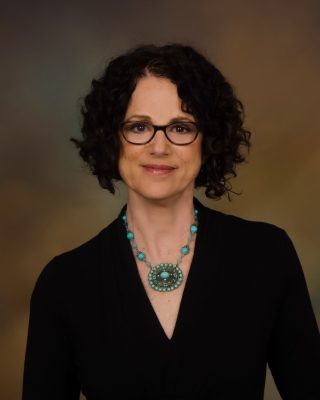
Pembroke Hall, Room 305, 172 Meeting Street, Providence RI 02912
CSREA is delighted to partner with the Office of Institutional Diversity to bring Robin DiAngelo to campus as part of the Diversity & Inclusion Summit, and to serve as CSREA's annual Third Rail Lecture Series speaker. Her talk is entitled, "White Fragility and Its Impact on Diversity and Inclusion Efforts on Campus."
Julian Go, "Postcolonial Thought and Social Theory" [VIDEO]
Jeanine Staples, "You Need Another Lover: How White Supremacist Patriarchal Ideologies Prompt The Generation Of Toxic Lover Identities In Black Women And How Those Identities Are Killing Us" [VIDEO]
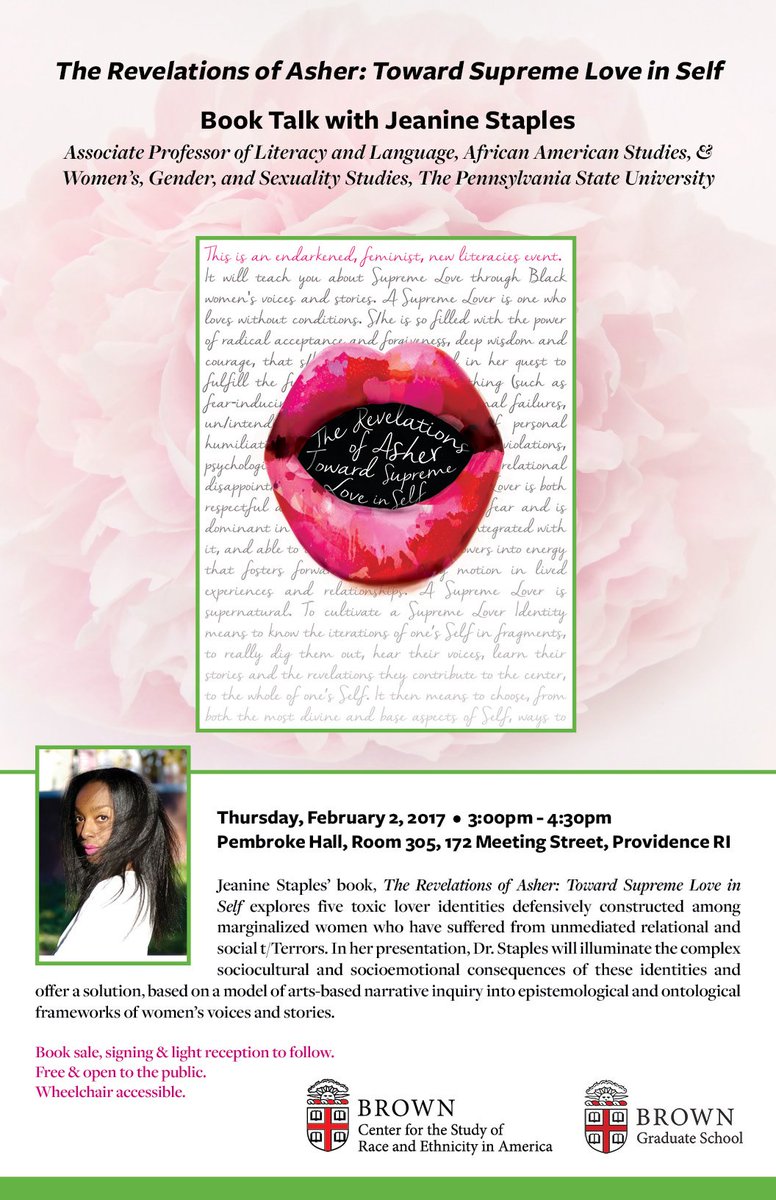
Pembroke Hall, Room 305
In this public lecture, scholar, educator, and activist Jeanine Staples will share her groundbreaking research on the five toxic lover identities defensively constructed among marginalized women who have suffered from unmediated relational and social t/Terrors. In her presentation, Dr. Staples will illuminate the complex sociocultural and socioemotional consequences of these identities and offer a solution that can salvage not only the souls and soma of these women, but also the social and emotional justice movements they have founded and advance for the benefit of all humankind.
Rashad Shabazz, "Spatializing Blackness: Architectures of Confinement and Black Masculinity in Chicago" [VIDEO]
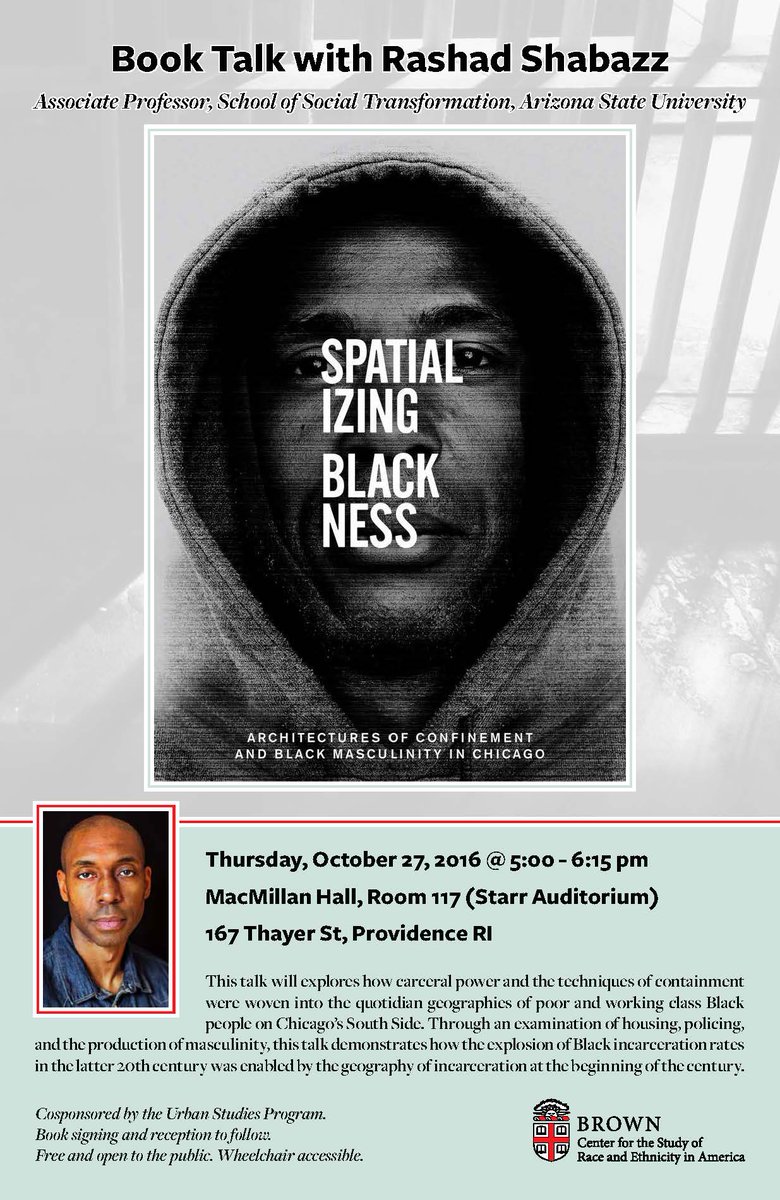
MacMillan Hall, Room 117 (Starr Auditorium)
This talk will explore how carceral power and the techniques of containment were woven into the quotidian geographies of poor and working class Black people on Chicago's South Side. Through and examination of housing, policing, and the production of masculinity, this talk demonstrates how the explosion of Black incarceration rates in the latter 20th century were enabled by the geography of incarceration at the beginning of the century.
Book signing and light reception to follow. Free and open to the public.
Cosponsored by the Urban Studies Program.

